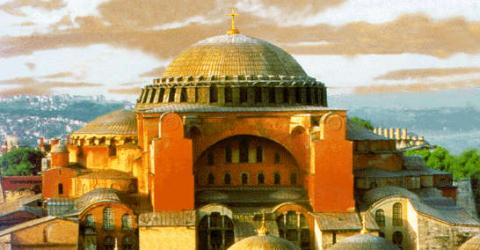In Polycarp’s Epistle to the Philippians, he commends the letters of Ignatius of Antioch: “The Epistles of Ignatius written by him to us, and all the rest [of his Epistles] which we have by us, we have sent to you, as you requested. They are subjoined to this Epistle, and by them ye may be greatly profited; for they treat of faith and patience, and all things that tend to edification in our Lord,” (chap. 13).
Now, Polycarp was a disciple of the Apostle John. Further, Ignatius is the first voice for explicit episcopacy in Church History. I can’t address questions of interpolations in the letters of Ignatius, but I do know that some Protestant historians argue that Ignatius was expounding a relatively new arrangement for church government. The theory goes that since Ignatius is at such pains to stress the importance of the bishop, then he is arguing for a novel structure. If episcopacy was already the norm, then why would Ignatius need to jump up and down on it? I need to examine this argument further, but here’s a thought regarding the relationship between Polycarp and Ignatius.
As the quote above shows, Polycarp approves the epistles of Ignatius. If, as one theory alleges, Ignatius was propounding a novel conception of church governement, why does Polycarp not qualify or censure Ignatius? Perhaps Polycarp approved Ignatius’s strong statements on the role of bishops, and thus did not need to say anything about it?
